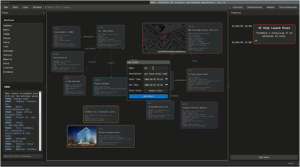A Brief Summary of The Potential Threats Revealed in Black Hat 2020 Conference
Main Highlights
US Presidential Elections
As the US awaits its presidential elections, cybersecurity has become a significant issue. In the conference, experts came out with various solutions to election-related cybersecurity threats that might arise during the campaigning and offered new ideas to strengthen the infrastructure.
Exploits and Vulnerabilities
Cybersecurity expert Matt Vixey presented research on cybersecurity exploits. The main idea is that cyberattacks can only be prevented if there’s a proper system involved; in other words, a plan-of-action. Here, the ‘Human factor’ risk is involved, and the hackers attack it.
DNS Attacks
In recent times, DNS encryptions and its security have come into question. Hackers have come with a new way to breach the encryption; the technique is known as DOH (DNS-over-HTTPS). The key speaker for the topic was Mr. Eldridge Alexander, Cisco’s Duo Labs, Security Research, and Development manager.
Cyberthreats and COVID-19
The COVID-19 pandemic saw a surge in cybersecurity threats. With people working from home, hackers saw new targets that were easy to attack. Keeping this particular issue in mind, Shyam Sundar Ramaswami presented several ways to identify pandemic based malware or malspam, including a rapid statics analysis approach.
A world without passwords
Imagine a world with no passwords, a world where all the systems are integrated with a unique authorization model. Wolfgang Goerlich and Chris Demundo presented their ‘Zero Trust’ theory, where systems would not need to require passwords, making a secure cyber world.
Possible Threats
- Influence Campaigns- Misuse of social media platforms to disseminate fake news and misinformation has become a critical problem, especially during the election campaigns.
- According to James Pevur, satellite communications are open to surveillance and monitoring. Hackers can easily bug communication using a few sophisticated gadgets.
- Botnets- Hackers can use high watt devices and turn them into Botnets, attacking energy campaigns.
- Experts say that open source tools can be used by hackers to create fake websites or channels that look the same as the original. It can allow the influence of public opinion.
If you like the site, please consider joining the telegram channel or supporting us on Patreon using the button below.


![[AKIRA] - Ransomware Victim: Hayward Quartz Technology 2 image](https://www.redpacketsecurity.com/wp-content/uploads/2024/09/image-300x300.png)

![Cobalt Strike Beacon Detected - 116[.]205[.]242[.]143:443 5 Cobalt-Strike](https://www.redpacketsecurity.com/wp-content/uploads/2021/11/Cobalt-Strike-300x201.jpg)